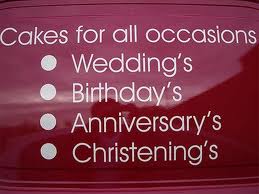With stunning backdrops, combined honeymoons and the appeal of a more intimate or unique setting, destination weddings have become increasingly popular for UK couples. While tying the knot under palm trees or historic ruins can be magical, it is important to understand the legal implications, especially when you plan to return to the UK and live as a legally married couple.
This guide covers everything you need to know about UK recognition of marriages conducted abroad, required documents, name changes, divorce rights and what to do if your marriage abroad is not recognised in the UK.
Why Get Married Abroad and Why Legal Clarity Matters
Couples often choose to marry overseas for a range of reasons:
- A love of travel or a specific country
- Lower costs or smaller guest lists
- More picturesque or exotic settings
- Cultural or family connections
Whether you are marrying on a beach in Bali or a vineyard in Tuscany, a beautiful ceremony does not automatically guarantee that your marriage will be recognised under UK law.
Understanding your legal status is crucial. Recognition affects everything from tax status, inheritance rights and immigration, to divorce rights, pensions and next-of-kin status. Getting the legal side right ensures that your marriage carries the same weight in the UK as one conducted at your local registry office.
Do You Need to Register Your Marriage in the UK if You Got Married Abroad?
In short: No. Since 1 January 2014, it is not legally required to register a marriage in the UK that was solemnised in another country.
Instead, the UK operates under a recognition system: if the marriage is legally valid in the country where it took place, and you meet UK legal requirements, then the UK will generally recognise your marriage automatically. Therefore, unless there is a specific issue with the validity of the marriage, there is no need to ‘re-marry’ or notify a UK authority.
Conditions for UK Recognition of a Marriage Conducted in Another Country
Even though a marriage might have been valid in the country where it was conducted, this does not mean that it will be automatically valid in the UK. There are a few key conditions that must be met:
✓ Local Legal Compliance
You must comply fully with the marriage laws of the country where the wedding takes place. This includes everything from residency requirements and documentation, to waiting periods and witness rules.
✓ UK Legal Requirements
Even if the marriage was valid abroad, the UK will not recognise it unless it would also have been valid in the UK at the time. This means that:
- Both parties were at least 18 years old at the time of marriage (or 16 years old with parental consent).
- Neither party was already married or in a civil partnership.
- Both parties consented freely, without coercion and were mentally competent.
- The marriage is monogamous – UK law does not recognise polygamous marriages, even if they are valid in the other country.
Failing any of these requirements could mean the UK does not legally recognise your marriage.
Documents You May Need After Marrying Abroad
Once married, your foreign marriage certificate becomes a vital legal document in the UK. You will likely need it for visa applications, tax status changes or even something as simple as updating your bank records.
Here is what you should get:
- An official marriage certificate from the country where you married.
- Multiple certified copies, if possible.
- A certified translation into English or Welsh (if the original is in another language).
Translation Requirements:
- A statement by the translator or translation company that it is a ‘true and accurate translation’.
- The full name, contact details and signature of the translator or translation company representative.
- The date the translation was completed
- The stamp of a recognised translation industry body, such as the Association of Translation Companies (ATC), the Institute of Translation and Interpreting (ITI) or the Chartered Institute of Linguists (CIOL).A certified translation must include:
- Professional translation services are recommended and are often essential for legal or immigration purposes.
Using Your Marriage Certificate in the UK
You may need your marriage certificate for various administrative tasks:
- Changing your name on passports, bank accounts and HMRC records.
- Applying for a spousal visa or sponsoring a partner for UK residence.
- Accessing pensions, insurance or benefits as a spouse.
- Making legal declarations or acting as a next of kin.
Many organisations require original documents or certified copies, so it is wise to request several official copies when abroad.
Keep at least one copy safely stored in case of emergencies or replacements.
If you need to submit a certified translation of your certificate, it usually needs to be accompanied by a certified copy of the original.
Certificate of No Impediment (CNI)
Some countries will require you to prove that you are legally free to marry before the ceremony. This is where the Certificate of No Impediment (CNI) comes in.
What is a CNI?
A CNI is a document issued by the UK government confirming that there is no known legal reason why you cannot marry.
How to Apply:
- You must give notice of your intention to marry at your local register office.
- You will need to provide ID, proof of address and possibly divorce documents (if applicable).
- After a waiting period (usually 28 days), you receive the certificate.
Check with the embassy or civil registry of the destination country whether a CNI is required.
What If Your Marriage Is Not Recognised?
If the UK does not recognise your overseas marriage, this could affect:
- Immigration status
- Next-of-kin rights
- Inheritance or pension entitlements
- Divorce proceedings
What You Can Do:
- Seek legal advice to determine the root issue.
- Marry again in the UK, if legally possible.
- Apply for a Declaration of Validity through the UK courts (using Form D70).
A legal declaration confirms that your marriage should be treated as valid in the UK. It can be especially useful for resolving immigration or inheritance matters.
Divorce Considerations
If your foreign marriage is recognised in the UK, you can legally divorce in the UK too. To do so, you must meet the following conditions:
- You have been married for at least 12 months.
- The marriage has irretrievably broken down.
- At least one spouse is habitually resident in England or Wales (or meets other jurisdiction rules).
The UK’s no-fault divorce system makes the process simpler, but if the marriage was conducted abroad, this can still introduce complications, particularly if one party resides overseas. Legal advice is recommended in international divorce cases.
Changing Your Name After Marrying Abroad
Marriage is a common time for one or both partners to change their surname. Here is how it works if you married abroad:
When You Don’t Need a Deed Poll:
If your marriage certificate includes both spouses’ names, and you are adopting your partner’s surname, most UK organisations (like HM Passport Office or DVLA) will accept the certificate as evidence.
When You Do Need a Deed Poll:
- If you are creating a new surname (e.g. combining both surnames)
- If the marriage certificate does not clearly link the names
- If you are changing your first name or reverting to your maiden name after divorce
Deed poll services can help streamline the name change process and ensure the new name is accepted by all relevant authorities. For more information on deed polls in the UK, visit https://www.gov.uk/change-name-deed-poll.
Practical Tips and Best Practices
Planning a wedding is complex enough without legal surprises. Here are some final tips to ensure your overseas marriage goes smoothly and is recognised when you return home:
✓ Check local marriage requirements early: Each country has different rules, so thoroughly research what documents, waiting times or translations you will need.
✓ Request multiple copies of your marriage certificate at the time of issue.
✓ Get professional translations done for any documents not written in English or Welsh.
✓ Store your original documents securely in a safe or fireproof box.
✓ Use a professional legalisation service if you need certified copies or apostilles for immigration or official use.
Getting married abroad can be a dream come true, but it is essential to make sure that your union is legally recognised when you return to the UK. From checking local laws and securing the right documents, to understanding when further legal steps like apostilles or deed polls are needed, preparation is key.
With the right information and a bit of forward planning, your destination wedding can be both beautiful and legally sound, allowing you to enjoy the adventure without any post-ceremony legal headaches.
Need help translating and legalising your non-UK marriage certificate?
As an Accredited Member of the Association of Translation Companies (ATC), Business Language Services has been providing certified translation services for over 30 years.
We regularly translate all kinds of certificates and legal documents requiring certification and offer all four main types of certification available (certification, notarisation, apostille and sworn). We can help you with every step of the process to ensure that your translation meets the legal requirements of the country and purpose for which you need it.

